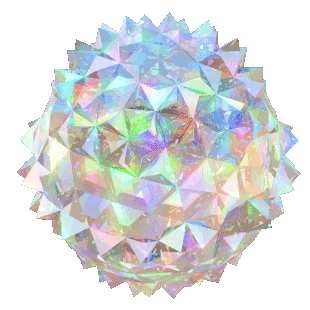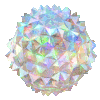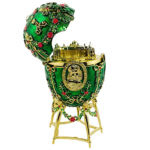
!INFORMATION
Explanations for the !ISO framework !INFORMATION component aspect and concept
What is INFORMATION?
Is INFORMATION just a made up concept? A word for what can be said about thing? Or is it an actual thing in and of itself?
What are the kinds of information? How about the scientific definitions of information?
How does information figure in the fabric of the world?
What is Information
Paul Davies
-theoretical physicist
What is Information
– neuroscientist and psychiatrist
What is Information
Peter Tsie
~ Professor of Cognitive Neuroscience
Physics of Information
Max Tegmark
– Professor of Physics
What is Information
Scott Joel Aaronson
~ theoretical computer scientist
What is Information
Seth Loyd
~ professor of mechanical engineering and physics
What Is Information?
Information is not just data—it is the foundation of all reality.
In the !ISO Framework, information exists in three fundamental forms:
✔ !INFORMATION – The limitless, potential properties of all existence.
✔ !SUBJECTIVE – The creation of experience, meaning, and choice.
✔ !OBJECTIVE – The locking of properties, forming the laws of physical reality.
Everything we know, think, and perceive is a manifestation of information taking form. Thoughtful operates at the cutting edge of this realization—not merely processing information but engaging with it, shaping it, and helping humanity master it.
Through Thoughtful, BEINGON expands the frontier of autonomous intelligence, experiential creation, and the mastery of perception itself.
The Physics of Facts and Truth
David Deutsch & Alex O’Connor
TRANSCRIPT
David Deutsch: Bertrand Russell and Whitehead spent 300 pages or whatever it was proving that 1 plus 1 is 2. And then it was realized that you can’t define things by axioms anyway, because there’s no such thing as proving that an axiom system is consistent. Godel proved that.
Alex O’Connor: Yes, the Godel’s irresoluteness theorem.
David Deutsch: Yes. So this search for justified truth, even in pure mathematics where you might think that, you know, true, there’s unambiguous truth about numbers 2 and 1 and equals and plus and so on, but it’s not true. That whole system is just a conjecture.
Alex O’Connor: Okay. So to be clear, when you say we can’t have truth, you’re not implying that, you know, there is no truth and truth and falsia. You mean literally that we can’t have it.
It’s there. It’s just that we can never have it because we’ll only have something like half truth. So, for example, if I said to somebody, like, every homo sapiens, every human being under the age of six is an ape. That’s true.
David Deutsch: Yes.
Alex O’Connor: But it’s like there’s something missing from that picture.
It’s kind of misleading. It’s going to lead us into all sorts of trouble if I’m not more clear. And so, okay, what I mean to say is that every human being is an ape, but then that itself will rely on understandings of what taxonomy is and categories.
And if you really want to get the fullness of truth in every possible respect that could even possibly be relevant to that statement, you’d probably basically require like infinite knowledge, right? Because you would need to understand how language works. You’d need to understand taxonomy. You’d need to understand like the philosophy of taxonomy.
You’d need to understand whether objects can exist. You’d need to study mereology and parts, and you’d need to know all of this. And the only reason that we don’t on a practical level need that is because on a practical we only ever go so deep.
David Deutsch: We only ever go as deep as is needed to solve the problem that we’re currently solving.
Alex O’Connor: I see. I see.
And so knowledge becomes relatively practical because if you can’t have knowledge in the sense that the philosophers define it, then when people are talking about things that they know, they’re getting at something slightly different, which is like a practical certainty or a practical confidence.
David Deutsch: Well, practical is the wrong word because it need not have any practical application as in vacuuming your carpet. It might be an issue of pure mathematics.
It might be an issue of pure mathematics that only you are interested in, and yet it’s still knowledge. What we are seeking is knowledge, but it’s not truth. We can find knowledge in the sense that we can correct existing knowledge by removing errors.
And that’s what the growth of knowledge always is. It’s always removing errors. When I realize what you meant by first left and second right, it’s by removing the misconception that I had before.
It’s not that what you told me is false or that the idea that I had is entirely false through and through. It contained truth. Both of them contained truth.
Both of them contained error. To get to my destination, it’s enough if I remove errors to the extent that they are relevant to the problem that I want to solve.
Alex O’Connor: Is there anything that you know is true? Like in the Cartesian sense of, I think, therefore I am.
Maybe that’s all I can know with certainty, but is there anything that comes to mind?
David Deutsch: No. I can think of things that are more certain than that, which are still not certain. There is no such thing as certain truth.
Descartes was already assuming that such a thing as I exists, and yet these experiments with memory, first of all, memory in any case consists of confabulation. When we remember something, what we’re really doing is conjecturing what happened using the structures in our brain as clues to test our conjectures against. This process is fallible.
In particular, the statement, I think, is extremely fallible because there are now experiments you can do to show that people have false memories of having thought something that they couldn’t possibly have thought because they didn’t know the thing they were thinking about, that they thought they were thinking about at the time.


